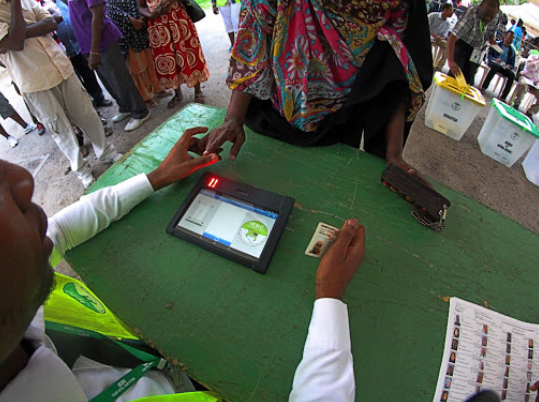Mbeere North MP Geoffrey Ruku has proposed changes to the Elections Act, 2011, aiming to transition Kenya’s electoral system to a fully electronic format. His draft bill seeks to eliminate manual voting and make all electoral processes, including voter registration, candidate nominations, and voting, electronic.
“The principal objective of the draft bill is to amend the Elections Act, 2011, to incorporate a fully integrated electronic electoral system in the Kenyan electoral processes,” Ruku explained.
In a presentation to the Budget Committee, chaired by Kiharu MP Ndindi Nyoro, Ruku outlined how the proposed Elections (Amendment) Bill would manage, support, and administer the new electronic voting systems. He advocates for abandoning the current integrated system, which includes components for biometric voter registration, voter identification, and electronic result transmission.
“The electoral process is hybrid as there are manual processes such as the casting of physical ballot papers. Therefore, the legislative proposal intends to create a fully integrated electronic system,” the draft bill reads.
Ruku envisions a system where all processes, including voter registration, voter registers, and candidate nominations, are conducted electronically. “Voting will be by use of printed machine-read and optically scanned ballots, hence there will be no manual voting, and all processes will be carried out electronically,” the brief states.
Ruku argues that traditional manual voting systems are becoming unsustainable in an increasingly automated world. He noted that since the violence following the 2007 general elections, there has been ongoing debate about whether to adopt electronic or manual voting exclusively. The IEBC has made progress with biometric systems for voter identification, but concerns remain about result transmission and tallying.
The Kriegler Commission, formed to investigate the 2007 election turmoil, recommended adopting biometric technology for voter verification and introduced several changes to the electoral management process.
As a result, the IEBC deployed the Kenya Integrated Electoral Management System (Kiems), which has the capability to register voters biometrically, identify voters, and transmit results to the national tallying center. According to the Parliamentary Budget Office (PBO), implementing a fully electronic voting system would cost approximately Sh10.7 billion. This includes Sh2.6 billion for upgrading Kiems and Sh110 million for auditing and certifying the technology.
The PBO estimates that vote scanning machines would cost around Sh7.8 billion, based on an assumption of 52,481 polling stations for the 2027 election. Additionally, Sh110 million could be allocated for the purchase of 4,350 more Kiems kits and another Sh4,620 for training and replacing obsolete kits.
“If this Bill is enacted, it is likely to bring benefits to the country by enhancing the accuracy, speed, transparency, and verifiability of election results,” the MP noted. “E-voting offers convenience and efficiency by removing the need for physical ballots, polling stations, and manual vote counting. This technology saves time and reduces human error.”
To address concerns about the cost, the MP proposes implementing the system in phases “to ease the financial burden of a one-off implementation.” He cited examples from Nigeria, Venezuela, and the US.
In Nigeria, results are sent to a central portal in real-time, reducing the chance of rigging. The US uses touch screens for voters, scanners for reading paper ballots and verifying signatures, and web servers for public tallies. Machine counting, adopted in most US states, is praised for its speed compared to manual counting.
Venezuela and the Philippines use a voting system supplied by Smartmatic, which IEBC contracted for results transmission in the 2022 election. This system is noted for its multiple auditing capabilities, secure results transmission, and advanced data recovery features.
IEBC data indicates that the technology deployed in the 2022 general election cost taxpayers over Sh5.3 billion, with the total election expenses reaching about Sh34.7 billion.



